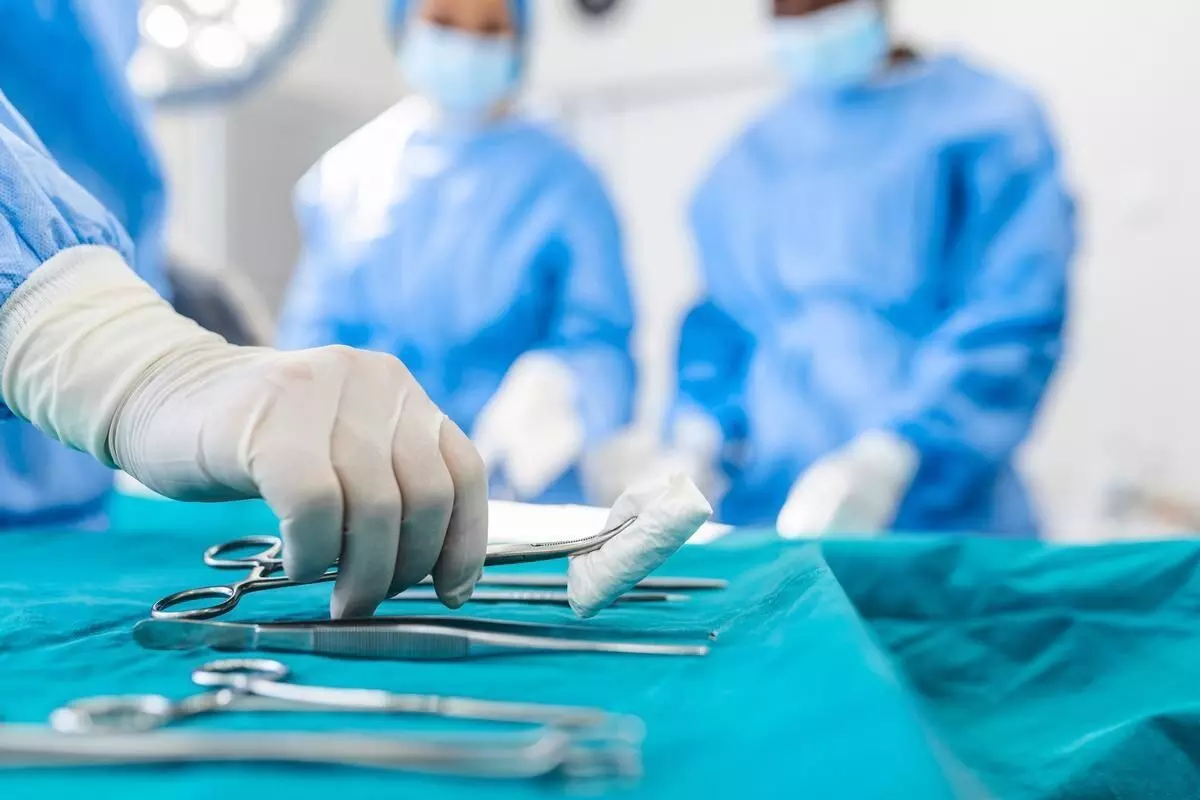KIMS docs treat rare reproductive medical condition with only 300 cases worldwide
The case is about the Persistent Müllerian duct syndrome, where, due to the mutation of genes, hormones are not released sufficiently, and the person will have both male and female reproductive organs.
By Newsmeter Network
Representational Image.
Hyderabad: Doctors at the KIMS Hospital in Secunderabad have come across a rare case concerning reproductive organs of which only 300 cases have been reported worldwide.
The case is about the Persistent Müllerian duct syndrome, where, due to the mutation of genes, hormones are not released sufficiently, and the person will have both male and female reproductive organs. In India, only 20 cases have been reported so far.
It is usual for male and female persons to have separate reproductive organs. Though both will be present at the fetus stage, later with the effect of certain hormones, only one will be left in the body. Hence, at the time of the birth, it is decided whether it is a male or female baby.
But, in some cases genetic mutation can cause result in both types of organs being present – the Persistent Müllerian duct syndrome.
Such a rare case was taken up by consultant urologist, uro-onco, andrologist, renal transplant, and robotic surgeon Dr YM Prashant of KIMS Hospital in Secunderabad. He explained the case and the treatment given to the patient.
Male reproductive organs remain inside body
A 40-year-old person from Mancherial in Telangana was suffering from infertility and lower abdominal pain. The local doctors tested him and referred the case to KIMS Hospitals. At the hospital, through ultrasound and MRI scans, the hospital understood that the patient has undescended testis.
He appeared physically normal but harboured female internal reproductive organs like the uterus, fallopian tubes, and part of the vagina too. This was termed the Persistent Müllerian Duct Syndrome due to the deficiency of anti-mullerian hormone (AMH) activity.
Mutation in the AMH gene or end-organ receptor gene caused this condition. AMH regresses the Mullerian structures (responsible for female internal reproductive organs) during fetal development in normal males. Its deficient activity leads to persistent Müllerian duct derivatives (internal female reproductive structures along with male). Such people look normal. They will have a beard and moustache and the penis will also look normal. But, as the testis don’t descend, sperm is not produced. Thus, infertility issue arises.
On evaluation, the patient was found to have a cystic structure posterior to the bladder, and prostate attached to the prostate. Testosterone, LH, FSH, and Prolactin hormones were quite normal in the tests. But, his testis is absent in the scrotum, and they are located intra-abdominally.
The doctors decided to take up laparoscopic hysetrosalpingectomy surgery. In the process, they dilated the uterus, a part of the vagina, fallopian tubes, and testes embedded in a broad ligament. They also dilated the cyst attached to the prostate. The patient's condition was uneventful in the post-operative period, so he was discharged on the third day.
“The patient was started on quarterly testosterone replacement. If this condition was detected when the person was 18 years of age and went through the same surgical procedure, he could have had a chance at fertility. But now, he doesn’t have such a chance. Due to illiteracy, poverty, and social taboo, many people suffering from such conditions don’t visit proper medical facilities,” explained Dr Prasanth.